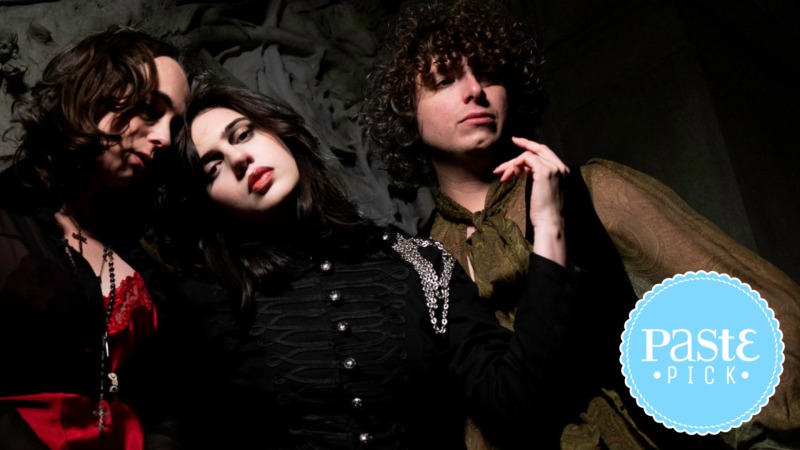Sunflower Bean Resist Trends and Take Command on Mortal Primetime
On the trio’s fourth album, the louds are louder, the quiets quieter, no power chord or lilting lullaby so fey it can't be goosed just a little bit more. Glam pivots to folk, hair-metal melds seamlessly with soft rock, yet it never once trips over itself with an out-of-place reference or hoary retread.

More successfully than most, Sunflower Bean has always resisted being effectively pigeonholed. From their earliest days, phrases attempting to define their sound in just one or two words (“neo-psychedelic rock,” “’70s-meets-90s,” “new millennium retro glam”) quickly piled up, one after the other, as they all inevitably fell short in capturing the band’s deceptively simple melange of styles and sounds. And with their first LP after more than a decade of making music together, the group is no closer to easy categorization—but it might have happened upon making the best album of the trio’s career.
Because after 10+ years of flirting with nearly every classic-rock trope under the sun, Sunflower Bean has returned with Mortal Primetime, a record which casts aside the traditional rock-band impetus to choose an era, genre, and style of rock and roll’s past to emulate—and instead embraces all of them. Whereas previous releases like Twentytwo in Blue and Headful of Sugar maintained more aural cohesion (’70s pop-rock and glam-ified NYC dive-bar grooves, respectively), the new album’s connective tissue is more conceptual and emotional than musical. After the past few years saw band members moving to different coasts, drifting apart, and wondering if it was time to call it a night, Mortal Primetime positively seethes with the desire to make this one count—to craft a deeply confessional record that uses scuzzy riffs, over-the-top arrangements, and slick melodies (sometimes a hair’s breadth away from corny) in order to smuggle in the most earnest, guileless feelings and emotions imaginable.
Sure, it still sounds like the same band—pivoting smoothly from soft-rock ballads to dirty ’80s power chords to Fleetwood Mac to T. Rex to Heart to the Who to you-name-it-it’s-probably-in-here—but with a newfound command of all those musical grace notes. Before, it always sounded like the group was delightedly excavating one old strain of retro sound after another and breathing new life into them; now, it feels like they’ve finished digging through every last crate of rock vinyl from the past 50 years, picked their faves, and pulled them together for a masterclass in rock fusion.
This is a record proudly playing to the cheap seats, indulging in the most shopworn of rock cliches in a manner that pushes them through the looking glass to make them fresh again. Put plainly, this album has fun, and isn’t embarrassed to lean into it. (This aesthetic was announced last year with the Shake EP, a collection of down-and-dirty rockers accompanied by videos in which the band leaned into full hair-blowing-in-the-wind, cock-rock bravado.) When the opening song, “Champagne Taste,” finds singer-bassist Julia Cumming informing the listener that “I got that champagne taste / I know you wanna take a sip,” over a churning riff that Bob Seger might have deemed a bit much, you know you’re in the hands of musicians eager to seize rock’s most time-tested theme—get it while you’re young—and make it their own.
-

-

-

-

-

-

-

-

-

-

-

-

-

-

-

-

-

-

-

-

-

-

-

-

-

-

-

-

-

-

-

-

-

-

-

-

-

-

-

-








































